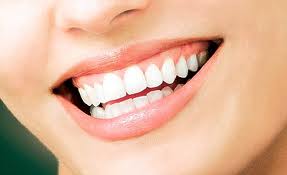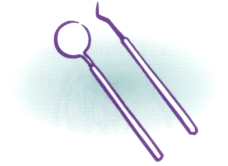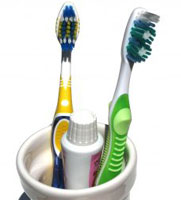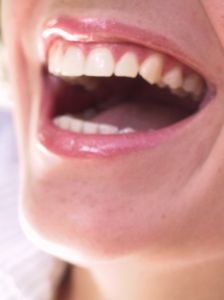We would like to thank Sean Tucker of Colgate for the generous donation of toothbrushes and toothpaste for our upcoming volunteer mission.
Search
Testimonials
Dental Health Education
Cancer threat for men?
Research published recently in The Lancet Oncology, a leading general medical journal, found that men with a history of gum disease are 14 percent more likely to develop cancer than men with healthy gums. In fact, researchers uncovered that men with periodontal disease may be 49 percent more likely to develop and kidney cancer are 54 percent more likely to develop and pancreatic cancer, 30 percent are more likely to develop blood cancers. “Previous research has suggested a potential link between gum disease and other conditions such as heart disease, diabetes and rheumatoid arthritis,” says Dr. Susan Karabin, President of the American Academy of Periodontology (AAP). “This study should prompt men to be particularly mindful of their teeth and gums now that gum disease may play a role in the onset of cancer.”
I want to thank you sincerely, for making my cleaning so merciful.
You are so accurate efficient and cheerful! With no shaming lectures… unheard of in the dental field!
I will definitely be back for more.
Your grateful client,
Patti-Jean
 Gary Small M.D Director of the UCLA Center on Aging says, “The health of your teeth and gums can help predict dementia”. University of Southern California research found that having periodontal disease before age 35 quadrupled the odds of dementia years later. Older people with tooth and gum disease score lower on memory and cognition tests, other studies show. Experts speculate that inflammation in diseased mouths migrates to the brain.
Gary Small M.D Director of the UCLA Center on Aging says, “The health of your teeth and gums can help predict dementia”. University of Southern California research found that having periodontal disease before age 35 quadrupled the odds of dementia years later. Older people with tooth and gum disease score lower on memory and cognition tests, other studies show. Experts speculate that inflammation in diseased mouths migrates to the brain.
As part of dental health month we will be providing a free Dental Awareness Day. This is part of our mission to promote good oral health as well as encouraging good oral hygiene habits every day.
We would like to invite you to join us on Saturday April 30 from 9:00 am to 1:00 pm for free dental screenings and fluoride treatments for participants between the ages of 2 and 19. You can find us at Christ Community Church 2221 Bowen Rd and appointments are first come first served. Christ Community Church has allowed us, once again to use space in their building.
All that is required is a short medical history consent form to be completed in full by the parent/guardian filled out prior to the screening day and a clean smile.
Each participant will receive an oral hygiene package filled with oral hygiene supplies to “Keep Your Smile Awhile”. We will also have information available on the Healthy Kids program which is run by the government of BC for low income families.
Oral Health Matters from Head to Toe
We once believed that tooth loss was the worst outcome of gum disease but now we know that oral health matters from head to toe. Gum disease has been linked to heart disease, stroke, diabetes, lung infections, increased risks during pregnancy and it has complications for those with osteopenia and osteoporosis.
Gum disease increases your risk of myocardial infarction (heart attack) and stroke by 2-3 times. Gum disease is considered a chronic low grade infection that results in an inflammatory response from your body. Chemicals that are released in response to inflammation circulate in your bloodstream and cause the linings of your artery walls to become rough and irritated. This then allows the arteriosclerotic plaque to accumulate more easily.
Gum disease can initiate a case of type II diabetes. Chronic inflammation also makes it more difficult for your body to regulate the blood glucose levels present and can bring on a diabetic response. Diabetes also contributes to uncontrolled gum disease as a result of decreased immune function.
Gum disease can potentially worsen pneumonia, bronchitis, emphysema and COPD. Inhaling the harmful bacteria that are present in chronic gum infections results in them getting lodged within the lungs and can worsen breathing problems.
Pregnant women with gum disease are 7 times more likely to deliver premature or low birth weight babies. The chemicals released in response to inflammation mimic the natural labour inducing hormones and can result in the early delivery of your baby. A premature baby can be at risk for many health problems as a result of the underdevelopment of organ systems.
People receiving oral medications for the treatment of osteoporosis or osteopenia have an increased risk for osteonecrosis of the jaw bone. Bisphosphonate medications used for the prevention of osteoporosis can upset the natural process of bone replacement which can result in an impaired healing response in the bone.
The top 3 things you need to know to prevent gum disease are as follows:
#3 Good diet, exercise and overall well-being. Gum disease is an inflammatory disease and by keeping your immune system strong you are more likely able to fight off the harmful bacteria that cause it.
#2 Good oral hygiene. The mechanical removal of plaque is still the best way to reduce the levels bacterial laden plaque in your mouth so everyone at minimum should brush twice a day, morning and night and flossing or use another oral hygiene aid to clean in between teeth.
#1 Regular professional dental hygiene cleanings every 3 to 6 months. Only your dental hygienist can properly and effectively remove all of the plaque and tartar that accumulates on your teeth and provide valuable feedback and make suggestions to you about maintaining your oral health.
Keep Your Smile Awhile, See a Registered Dental Hygienist.
March 2 2011
Heather and Theresa
Thank you for all the good work you do for me, for the community and now, for the global community!
Sincerely,
Janeane MacGillivray
Hello Heather.
I read the article “A brighter world, one smile at a time” in the Nanaimo News Bulletin recently. It was a heart-warming story. I wanted to send you a note of thanks for your community service in providing free care to pregnant women below the poverty line, a group that really does need support.
The Canadian Federation of University Women (CFUW) has advocated for many years for improvements in the lives of women and children. Those most vulnerable among us, low income women and children, have significant health issues and I am sure that dental health impacts on many other aspects of their lives. I would be interested in hearing more about your work in this area.
Congratulations on your work and continued best wishes.
Susan Murphy
Vice President, British Columbia
President, BC Council
Canadian Federation of University Women (CFUW)
The dental programs at Vancouver Island University would like to take this opportunity to individually thank the dental offices and personnel who have supported our students in their learning. Our programs and students are of a higher quality because of your participation.
Rosemary Holley and Mandy Hayre
Chairs of Dental Programs
Vancouver Island University
On behalf of GIC direct.com Financial Services Ltd., I would like to congratulate you and your business for your achievement of Finalist in the Health Award category at the 2011 Vancouver Island Business Excellence Awards.
Bill Ritchie
President
Heather,
Thank you for remembering the referral! My teeth feel great! And I was pleased with myself regarding the feedback on the overall condition of my teeth/gums. As well, I would like to let you know you that I had a very positive experience with you. I found you to be professional, thorough, understanding, and straight forward. Thank You!
All the best in the new year,
Brenda Olson
My sister sent me this lovely slide show of people and their dogs. Beautiful pictures and incredibly humbling quotes that I loved and thought you might like too!
Harbour City Dental Hygiene
Hello Heather and Theresa
We would like to thank you and your company for your generous gift certificate towards the Harbour City Hockey Classic tournament. This was the first women’s hockey tournament to be hosted in Nanaimo. The success of our tournament was due in part to the support of local businesses like yours and we appreciated your generous contribution.
Thank you once again for your support for this year’s tournament.
Nanaimo Islander Female Hockey Association
Nanaimo BC
Quitting smoking is the single best thing you can do to improve your health and quality of life. Non-smokers have a much lower risk of getting dozens of smoking-related diseases like lung cancer, heart disease, and COPD (Chronic Obstructive Pulmonary Disease, including emphysema and chronic bronchitis).
Here are some other good things that happen to your body once you stop smoking 1:
Within 8 hours carbon monoxide level drops in your body & oxygen level in your blood increases to normal
Within 48 hours your chances of having a heart attack start to go down & your sense of smell and taste begin to improve
Within 72 hours your bronchial tubes relax and make breathing easier & your lung capacity increases
Within 2 weeks to 3 months your blood circulation improves & your lung functioning increases up to 30%
Within 6 months your coughing, stuffy nose, tiredness and shortness of breath improve
Within 1 year your risk of smoking-related heart attack is cut in half
Within 10 years your risk of dying from lung cancer is cut in half
Within 15 years your risk of dying from a heart attack is the same as a person who never smoked
There are many other good reasons to quit smoking:
You’ll set a good example for your children
Your smoking will no longer affect the health of people around you
You’ll have more money to save or to spend on other things – a pack of cigarettes a day adds up to more than $3000 a year!
You’ll have more energy to do the things you love
You’ll pay lower life insurance premiums
Cigarettes will no longer control your life
References
1. Health Canada, Tobacco Control Program. On the Road to Quitting – Guide to Becoming a Non-Smoker.
 I would like to whiten my teeth.
I would like to whiten my teeth.Whitening is a harmless, quick, simple and cost effective way to brighten your smile. A brighter smile can emanate a feeling of confidence, improved self-esteem and make your oral health a higher priority. This is beneficial to your general well-being.
The procedure is an at home process that usually takes 1-2 weeks. At Harbour City Dental Hygiene we manufacture a custom tray to apply the whitening gel. This tray fits snugly to your teeth and will help prevent the risk of hypersensitivity to the teeth and gums, and reduce excess product waste. The dental hygienists at our office can also recommend appropriate measures to ensure your whitening process is a positive experience.
 What is the impact of smoking on my oral health?
What is the impact of smoking on my oral health?Tobacco use, either from smoking or spit tobacco, is the leading cause of gum disease. It also contributes to the following oral conditions among others: Oral Cancer, Leukoplakia, Smoker’s Palate, Impaired Blood Circulation, Receding Gums, Halitosis, Dental Staining and Excess Dental Calculus. The good news is that within hours of quitting the body begins to repair itself. Recent studies have shown that success rates increase with the use of stop-smoking medication and help from a health professional. Dental hygienists are ideally situated to provide smoking cessation techniques through education, motivation, offering assistance and providing follow-up visits at regular intervals. We are always ready to assist anyone who is considering quitting smoking. (BC Cancer Agency, 2004)
As your teeth are used primarily for chewing, fewer teeth can make chewing difficult. In a large study done on adults it was found that “intake of vegetables, dietary fibre, crude fibre and carotene was significantly lower, while intake of total calories, cholesterol, and fat was significantly higher” when comparing people with less teeth to those with 25 teeth or more. Therefore, as gum disease is the leading cause of adult tooth loss, dietary evaluation and nutrition recommendations should be offered by your dental hygienist. (Oral Care Report, vol14, Number 1, 2004)
 When should my child have their first dental hygiene visit?
When should my child have their first dental hygiene visit?It is recommended that your child has their first visit to the dental clinic around his or her first birthday, but it could be sooner if you notice anything that concerns you. When the first dental visit happens at a young age it usually means that it will be a fun experience for your child. Good dental habits start when you are young and your dental hygienist is perfectly situated to talk about tooth brushing, flossing, eating habits and fluoride. At Harbour City Dental Hygiene we encourage parents to bring their children with them for a comfortable, fun orientation prior to their routine cleaning appointment.
 Are all snacks bad for my childs’ teeth?… No.
Are all snacks bad for my childs’ teeth?… No.Not all snacks are bad for your child’s teeth. In fact, snacks are an important part of a child’s daily food intake not just a “treat” between meals. Here are some suggestions on healthy snacks for hungry and thirsty children: applesauce, raw vegetables, raw fruits, fruit juices, vegetable juices, milk, cheese, cottage cheese, ice milk, milk puddings, yogurt, eggs, nuts, peanut butter, seeds, bagels, cereals, crackers, muffins, pita breads, yogurt drinks. Of course the healthiest thirst quencher is water and you should encourage your child to drink water throughout the day.
Tooth decay may happen if your child’s teeth are frequently exposed, for long periods of time to ‘sticky’ foods or liquids that contain sugars. Sugar exposure is detrimental to teeth. It provides food for the bacteria that cause cavities and increases the acid levels in your mouth. An increase in acidity of the mouth leads to tooth decay. As it is unavoidable for children and adults to indulge in Halloween treats, a crucial thing to remember is the length of time and frequency that your teeth are exposed to sugar. It is best to eat sugary foods like a dessert immediately after a meal and to finish the Halloween candy within a short amount of time instead of saving it for weeks. This limits the number of sugary acid attacks your teeth are exposed to. Also, remember to brush and floss and drink lots of water to clear the sugars from your mouth.
Teeth are at risk for tooth decay from the first day they appear in the mouth. The bacteria found in your baby’s mouth play a role in tooth decay. Therefore, if family members have a healthy mouth they will have less of the decay causing bacteria to pass on to their baby. In addition, the foods they eat and drink will play a role.

New generations have not experienced the same dental problems as their parents and think that brushing is all that is needed to maintain a healthy mouth. Research experts say “these people may be at the highest risk for tooth loss 10 or 20 years from now” – not from poor teeth but from poor gum tissue health (Dr. Ruth Freeman, Partners in Prevention 2003).
Although many people believe the purpose of flossing is to remove food from between the teeth it is primarily to remove plaque. When thousands of bacteria in plaque are left undisturbed it leads to gingivitis or periodontitis (gum disease). Gingivitis is nearly a universal finding among children and 75% of the adult population has gum disease to some degree (Academy or Periodontology).
It can take less than 5 minutes twice a day to brush and floss and it is never too early or too late to learn good habits. Your dental hygienist can assist you in developing new habits and monitor your progress at your dental hygiene recall appointment.
 I don’t have any cavities, why do my teeth hurt when I eat or drink cold or sweet things?
I don’t have any cavities, why do my teeth hurt when I eat or drink cold or sweet things?You may be suffering from dentin hypersensitivity which is pain transmitted to the nerve of the tooth due to exposed dentin (root surface). It was thought that gum recession from toothbrush abrasion was the most significant cause of sensitivity. Evidence suggests erosion, caused mainly from dietary acids, is the most significant factor in the loss of tooth enamel and a key predisposition for the development of dentin hypersensitivity (Canadian Advisory Board on Dentin Hypersensitivity 2003).
Citrus fruits and juices, wines and carbonated beverages, among others, are risk factors and play a critical role in “softening” enamel that then becomes more susceptible to the stresses of abrasion, attrition (grinding), or abfraction (clenching) causing dentin exposure.
First-line treatment should be non-invasive and reversible and should include behaviour modification to control or remove risk factors. Your registered dental hygienist can help you evaluate risk factors, make alterations, monitor the progression and provide non-invasive therapy for treatment and prevention of dentin hypersensitivity.
 What is scaling and why do I need to have my teeth scaled regularly?
What is scaling and why do I need to have my teeth scaled regularly?Scaling is the removal of bacterial plaque, stain, and calculus (tartar) from the tooth surface. Plaque accumulates on your teeth daily and contains bacteria that can cause gum disease. The minerals in your saliva calcify plaque to form calculus. Calculus provides a rough surface for the accumulation of more plaque and serves as a mechanical irritant to the surrounding tissue. The irritation inflames the gums allowing the harmful bacteria to penetrate the tissue and cause gum disease. This is why scaling needs to be performed regularly.
The rate of formation of calculus is different for everyone. It is greatly dependent on personal oral hygiene. Therefore, a suitable interval between continuing care appointments (scaling) should be discussed and reviewed regularly with your dental hygienist. A registered dental hygienist is educated and licensed to provide this important service to clients.
“When a Registered Dental Hygienist performs scaling on your teeth, they are doing more than just removing plaque and tartar – they are helping to prevent gum disease” (Wilkins, 7th edition).
 I just found out I am pregnant and wonder if I should continue with my regular dental hygiene appointments or wait until after the baby is born?
I just found out I am pregnant and wonder if I should continue with my regular dental hygiene appointments or wait until after the baby is born?During pregnancy certain hormones increase. This can cause an exaggerated response of the gums to plaque and calculus and produce what we refer to as pregnancy gingivitis. Symptoms of pregnancy gingivitis include red swollen gums that may be quite tender, an increase in bleeding from the gums, and/or benign tumours on the gums.
Toxins that are produced by the bacteria in plaque can enter the blood stream and trigger an increase in prostaglandin. This hormone causes the uterus to contract. Gum infections can also produce higher levels of tumour necrosis factor molecules another natural chemical that can trigger premature labour.
Several studies including a recent study published in the Journal of Periodontology; say women with gum disease who have their teeth scaled can “dramatically reduce their risk of having a premature baby”. Prematurity is the leading cause of infant death and those that survive can be faced with a lifetime of serious disabilities.
For these reasons it is very important to have good oral hygiene and have your teeth scaled regularly throughout pregnancy to prevent or continue to treat gum disease.
 fused about all the options for cleaning my teeth. Which is the best way to remove plaque?
fused about all the options for cleaning my teeth. Which is the best way to remove plaque?We generally recommend oral hygiene routines on an individual basis, though most times it is mechanical removal of plaque (brushing and flossing) over chemical removal of plaque (mouth rinse) that is the best option. Although there are several options for mechanical plaque removal including dental aides such as power brushes, floss, dental picks, or stimulators some individuals can not achieve control. In these cases it is an option to use antibacterial mouth rinses or toothpastes to achieve more complete control.

• More than 5 million teeth will be knocked out each year in sports-related trauma?
• Over 30% of all high school athletes report a dental injury at least once?
• Over 40% of all injuries that a properly fitted mouthguard could have prevented occurred in baseball and basketball?
• An estimated 300,000 sports-related traumatic brain injuries of mild to moderate severity occur in the U.S. each year?
• There is significant evidence mounting that properly fitted mouthguards can reduce the occurrence and severity of concussions?
There are many sports that involve intentional and non-intentional blows to the head, and no one can predict when they will happen. Concussions can occur when teeth are clenched or knocked together, which can happen with any hit to the chin or face. A considerable amount of force from a hit is transferred through the jaw and joint, then into the base of the skull.
People should wear a mouth guard whenever they are involved in an activity with a risk of falls or of head contact with other players or equipment. This includes football, baseball, basketball, soccer, hockey, skateboarding, even gymnastics. We usually think of football and hockey as the most dangerous sports for teeth, but nearly half of all sports-related mouth injuries occur in basketball and baseball.
 Important:
Important:If you knock-out a tooth and it is an adult (or permanent) tooth immediately put it back in its place (its socket). If this is not possible, or if there’s a chance that the tooth might be swallowed, put it in a container of cold milk. Contact your dental health professional right away. If it is after hours you can call the emergency dental number 250-741-3365.
A sports mouthguard should be considered an important part of the protective gear used for sports. They protect not only the teeth, but the lips, cheeks, and tongue and also help protect a person from concussions and jaw fractures.
The average cost of dental treatment over a lifetime for one tooth lost is approximately $5,000. When it comes to sports equipment, mouth guards should be a priority.

1. Initially wear at practices or training to adapt to the new feel in the mouth.
2. Always store and transport in a firm perforated case to avoid damage.
3. DO NOT CHEW on or alter your mouthguard as it may damage it or decrease its effectiveness.
4. Avoid high temperatures or direct sunlight to minimize distortion.
5. Do not share your mouthguard as it is made specifically for you.
6. Clean your mouthguard after each use with toothpaste and toothbrush or cool, soapy water and rinse thoroughly. You may also use a retainer cleaning tablet but you still need to brush it after soaking and allow to dry thoroughly it its protective case.
7. You may rinse quickly in mouthrinse before use to freshen the taste.
8. It may be easier to find a lost mouthguard if it is colored plastic rather than clear.
Due to your generous donation, the Ecole Quarterway School Silent Auction was a great success. The money will go new sports equipment, field trips and other things that will enhance the education of our students.
Many thanks!
Quarterway PAC

They tell people something about you. Good first impressions are the beginning of both long term business and personal relationships. They are usually made in the first 30 seconds.
Fifty-five percent of first impressions are based on nonverbal cues, your handshake, the brightness of your eyes, your cologne and of course a big healthy, bright smile.
A smile can tell people you are positive, happy, successful, satisfied, fun, confident, humorous, approachable or just makes people feel at ease.
So, see value in your smile.
Keep your smile awhile! See a registered dental hygienist!
Did you know some estimates state that 75% of the adult population over the age of 30 have some degree of gum disease? It can be localized to one area of the mouth or it can be generalized to the entire mouth and gum disease can range from mild to moderate to severe.
Did you know that along with smoking, elevated cholesterol or obesity, periodontal disease (gum disease) may be a risk factor for a number of serious health conditions?While we once believed the worst outcome of gum disease was tooth loss, we now know that ‘Oral Health Matters from Head to Toe’. Poor oral health affects other parts of the body! Recently periodontal disease has been linked to:
|
For those with gum disease the simple acts of brushing, flossing or chewing gum can introduce bacteria into the bloodstream which travels to other parts of the body. The potential is there to worsen or actually cause other types of health problems. Research is ongoing.